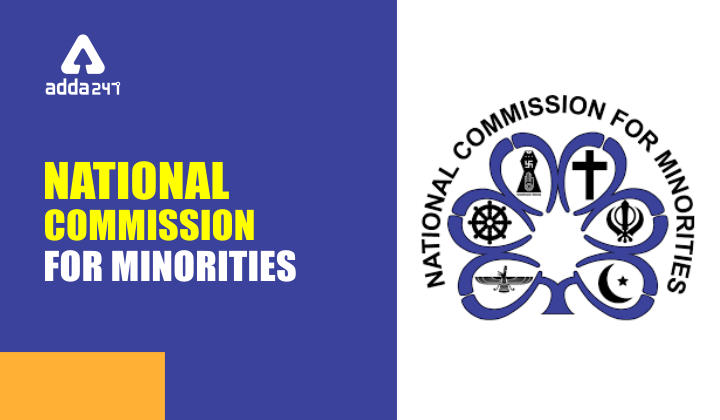The National Commission for Minorities (NCM) was established by the Union Government in 1992 under the National Commission for Minorities Act. According to the statute, the Commission would be made up of a Chairperson, a Vice Chairperson, and five members who will be nominated by the Central Government from among persons of eminence, talent, and integrity, with five members, including the Chairperson, being from minority communities. Muslims, Christians, Sikhs, Buddhists, Zoroastrians (Parsis), and Jains are six religious communities that have been designated as minority communities by the Union Government in India’s Gazette. Sikhs, Buddhists, Parsis, Christians, and Muslims were the first five religious communities to be notified in 1993; later in 2014, the Jains were added. According to the 2001 Census, these six communist countries account for 18.8% of the country’s population.
Buy Prime Test Series for all Banking, SSC, Insurance & other exams
The National Commission for Minorities (NCM) upholds the United Nations Declaration of December 18, 1992, which implies that “States shall protect the existence of minorities’ national or ethnic, cultural, religious, and linguistic identities within their respective territories and encourage conditions for their promotion.”
National Commission for Minorities Act of 1992
The National Commission for Minorities Act of 1992 established the National Commission for Minorities and provided for things related to or incidental to it. The commission is dedicated to the advancement of India’s recognised minorities. A chairperson, a vice-chairperson, and five members are required for the commission. Muslims, Christians, Sikhs, Buddhists, Zoroastrians/Parsis, and Jains are the six religious sects in India that have been designated as minority communities.
Functions of the National Commission for Minorities:
The National Commission for Minorities‘ functions are to assess the progress of minorities’ development in the Union and States, to monitor the effectiveness of safeguards provided in the Constitution and laws enacted by Parliament and state legislatures, to make recommendations for the effective implementation of safeguards for the protection of minorities’ interests by the Central Government or state governments, to conduct research and analysis on issues relating to Minorities’ socioeconomic and educational development, to recommend appropriate measures for the Central Government or State Governments to take in the case of any Minority, to submit periodic or special reports to the Central Government on any matter pertaining to Minorities, including the difficulties they face, and to any other matter referred to it by the Central Government. and to investigate specific complaints regarding minorities.
Powers of National Commission for Minorities:
The National Commission for Minorities has the authority to summon and compel the attendance of any individual from any part of India, as well as to examine him under oath. Any document must be discovered and produced, according to the law. Receiving affidavit evidence, Obtaining a public record or a copy of a public document from any court or office, Issuing commissions for the interrogation of witnesses and the inspection of documents.
National Commission for Minorities: Dignitaries
- Chairperson: Shri Iqbal Singh Lalpura
- Secretary: Shri Siddharth Kishore Dev Verman
- Joint Secretary: Shri Daniel E. Richards
- Members: Shri Dhanyakumar Jinappa Gunde, Ms Rinchen Lhamo, Shri Kersi Kaikhushroo Deboo, Ms Syed Shahezadi
FAQs
Ques. Is National Commission for Minorities a statutory body?
Ans. The National Commission for Minorities was established as a statutory organisation when Parliament passed the National Commission for Minorities Act in 1992. The NCM Act of 1992 applies to the entire country of India. The Act went into effect on May 17th.
Ques. What is National Commission for Minorities Act 1992?
Ans. The National Commission for Minorities Act of 1992 established the National Commission for Minorities and provided for things related to or incidental to it. The commission is dedicated to the advancement of India’s recognised minorities. A chairperson, a vice-chairperson, and five members are required for the commission. Muslims, Christians, Sikhs, Buddhists, Zoroastrians/Parsis, and Jains are the six religious sects in India that have been designated as minority communities.
Ques. Who is the current Chairman of National Commission for Minorities 2021?
Ans. Following is the composition of dignitaries of the National Commission for Minorities:
1. Chairperson: Shri Iqbal Singh Lalpura
2. Secretary: Shri Siddharth Kishore Dev Verman
3. Joint Secretary: Shri Daniel E. Richards
4. Members: Shri Dhanyakumar Jinappa Gunde, Ms Rinchen Lhamo, Shri Kersi Kaikhushroo Deboo, Ms Syed Shahezadi
Ques. What are the functions of NHRC?
Ans. The NHRC or National Human Rights Commission’s functions are to investigate, either proactively or reactively, abuses of human rights by the Indian government or by a public worker, as well as the protection of human rights, and to provide recommendations for their effective implementation.
Ques. What is the role of National Commission for Minorities?
Ans. The following are the responsibilities of the National Minorities Commission: It evaluates the progress of minorities in both the federal and state governments. It supervises the federal and state governments’ implementation of constitutional measures aimed at protecting minorities. The National Commission for Minorities Act of 1992 established the commission and provided for matters relevant to or incidental to its work. The commission’s goal is to help India’s recognised minorities advance.



 Indian Olympic Medal Winners List Till N...
Indian Olympic Medal Winners List Till N...
 Who is the Inventor of the Gramophone?
Who is the Inventor of the Gramophone?
 HS Dhaliwal Appointed New DGP Of Andaman...
HS Dhaliwal Appointed New DGP Of Andaman...
